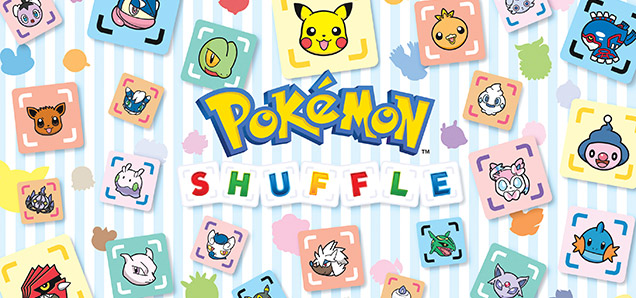Pokémon Shuffle: Please pay to continue
 CREDIT: NINTENDO
CREDIT: NINTENDOWaiting 2.5 hours to play some more isn't worth it. And neither is shelling out real world money.
As I’m playing round 75 the tedium sets in. It goes like this: play five rounds, and for each round played, a life is used. After that, you must wait 30 minutes to recharge each of the five lives, totalling two and a half hours or start showing your credit card.
This is the overall pattern of Genius Sonority and Nintendo’s newest release, Pokémon Shuffle.
The puzzle fighting game was released worldwide February 18 for the Nintendo 2DS and 3DS systems, with the object of the game being dangerously similar Pokémon Battle Trozei, itself a remake of the 2005 DS game Pokémon Trozei. Confused yet? This is a common tactic for Nintendo – reduce, reuse, recycle.
Like in Battle Trozei, the objective of Shuffle is to match highly stylized versions of the Charmanders, Pikachus and over 170 other Pokémon into columns or rows of at least three – think Bejeweled.
The catch to this game is that levels – with the exception of EX Stages – aren’t timed-based but based on the number of turns used.
Players are allowed a team of (usually) four Pokémon to battle, with each one having an ability, which can help sway the battle in your favour. After successfully lowering your target’s HP with strategic row-and-column matching, you then have the chance to catch it. The caught Pokémon then becomes available for future battles, levelling up with continued fighting and increasing its attack strength.
But even with all the dazzle and gorgeous new artwork for the pocket monsters, the game is still a free-to-play – a freemium. I can’t help but remember the recent South Park episode “Freemium isn’t Free.” And so, by paying money in small increments, the player can get ahead faster.
Think you needed just a few more turns to beat Mega Mawile? Just use a crystal.
On an awesome run and want to continue playing but your lives just ran out? Don’t wait those two and a half hours, just buy some crystals and get some more lives. Not to mention the various aides that can be acquired with coins before and after each battle, like the Great Ball – saving failed captures. Both of these money systems replenish in game through various acts – but agonizingly slow – and so sometimes it seems worth it to spend a dollar here and a dollar there.
That’s the issue with free to play. You’re always enticed to pay more until you get sick of the repetitiveness.
Though freemium is a much-hated game format for myself, it’s not the biggest injustice to this game. The major flaw in Pokémon Shuffle is the number of playable stages – or lack of. In a series that has over 700 creatures to choose from, why did they not use more?
Despite Nintendo only recently entering the freemium market with games like Rusty’s Real Deal Baseball, they and developer Genius Sonority matched the formula pretty well, which is a bit sad really. Twice the levels, a price tag of $10 to $15 and some 3D capabilities could have made Pokémon Shuffle a great game.













